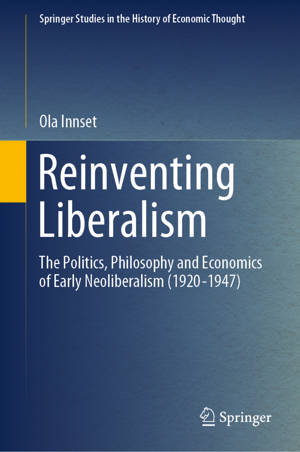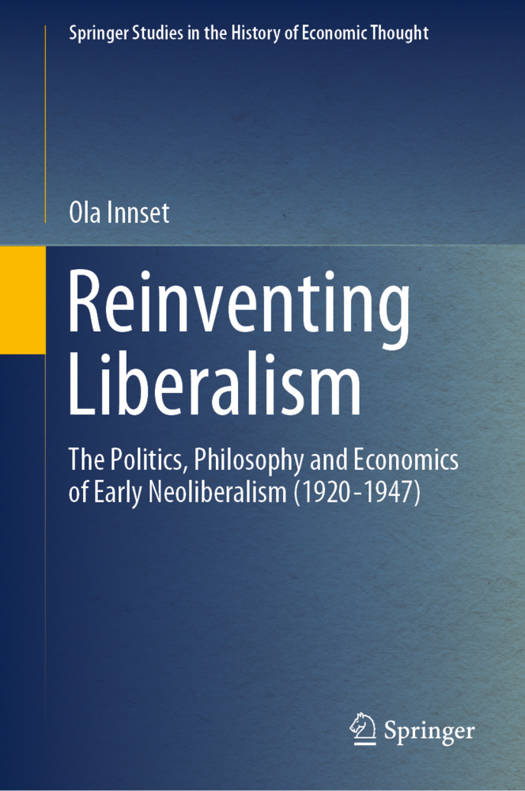
- Retrait gratuit dans votre magasin Club
- 7.000.000 titres dans notre catalogue
- Payer en toute sécurité
- Toujours un magasin près de chez vous
- Retrait gratuit dans votre magasin Club
- 7.000.0000 titres dans notre catalogue
- Payer en toute sécurité
- Toujours un magasin près de chez vous
Reinventing Liberalism
The Politics, Philosophy and Economics of Early Neoliberalism (1920-1947)
Ola InnsetDescription
In April 1947, a group of right-leaning intellectuals met in the Swiss Alps for a ten-day conference with the aim of establishing a permanent organization. Named "an army of fighters for freedom" by Friedrich Hayek, they would at times use "neoliberalism" as a description of the philosophy they were developing. Later, many of them would opt for "classical liberalism" or other monikers. Was their liberalism classical or was it new? All new creeds build on previous ones, but the intellectuals in question were involved in an explicit attempt to change liberalism and move beyond both past laissez-faire ideals and the social liberalism popular at the time.
This book provides a contextual, historical understanding of the development of neoliberal ideas, by studying its evolution from the first socialist calculation debates in Red Vienna to the founding meeting of the Mont Pelerin Society in 1947. The author examines key neoliberal conceptions of totalitarianism, market mechanisms and states, and presents a detailed study of the discussions during the first meeting of the Mont Pelerin Society. Offering a new perspective on the ideas that have influenced economics and politics since the 1970s, this study appeals to scholars interested in modern and political history, political theory and the history of economic thought.
"What is neoliberalism? In search of an answer, Innset's innovativeintellectual history takes us to a grand hotel overlooking Lake Geneva, and inside the first meeting of the Mont Pèlerin Society. Our journey leaves us with a deeper understanding of the new form of liberalism that is the legacy of this closed society."
Edward Nik-Khah, Professor of Economics, Roanoke College
"Reinventing Liberalism will put an end to endless debates around whether neoliberalism exists or not. Ola Morris Innset clearly shows that it does and presents a definitiveargument for what neoliberalism is. This book is a must read for all those who want to have a solid understanding of the ideology that is framing and increasingly visibly endangering our world...."
Marie Laure Salles-Djelic, Sciences Po Paris
Spécifications
Parties prenantes
- Auteur(s) :
- Editeur:
Contenu
- Nombre de pages :
- 196
- Langue:
- Anglais
- Collection :
Caractéristiques
- EAN:
- 9783030388843
- Date de parution :
- 30-01-20
- Format:
- Livre relié
- Format numérique:
- Genaaid
- Dimensions :
- 156 mm x 234 mm
- Poids :
- 471 g

Les avis
Nous publions uniquement les avis qui respectent les conditions requises. Consultez nos conditions pour les avis.






